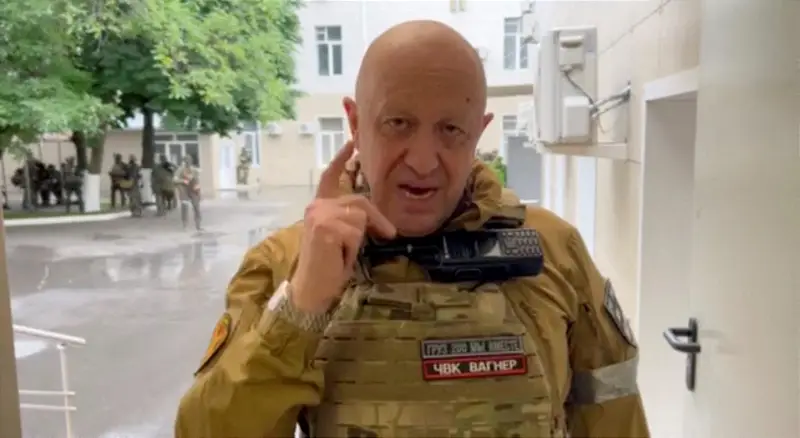From the missing submersible in the United States to the devastating Turkey-Syria earthquakes and the ongoing war between Israel and Hamas, the Palestinian militant group, 2023 has been a year of dizzying change and constant headlines.
Here are some of the foreign headlines that sparked global conversations in 2023.
JANUARY: NEPAL RECORDED DEADLIEST PLANE CRASH IN THREE DECADES
On January 15, Nepal recorded its worst air crash in three decades after a passenger plane with 72 people on board crashed near Pokhara International Airport in the Kaski district.
All persons on board, comprising 68 passengers and four crew members, were killed.
FEBRUARY: TURKEY-SYRIA EARTHQUAKES
Another devastating record was set in February after a magnitude 6.3 earthquake struck southern Turkey near the Syrian border.
The earthquakes, which happened within two weeks, were felt in Egypt and Lebanon and were termed the country’s worst in modern history.
The World Health Organisation (WHO) said over 40,000 persons died in the disaster.
MARCH: XI JINPING WON THIRD TERM
In March, Chinese President Xi Jinping secured his position as leader of the country for a third term.
Xi, who has been in power for over a decade, was elected the party’s general secretary for another five-year term, bringing the country back towards one-man rule after several years of power-sharing among its elite.
The 69-year-old Communist leader was also reappointed head of China’s central military commission, keeping him in charge of the People’s Liberation Army.
In the same month, China announced its “defeat” of the COVID-19 virus and ended its three-year zero-COVID policy. The Asian country also resumed issuing visas to foreign tourists.
APRIL: FINLAND JOINED NATO, SUDAN WAR AND KENYAN’S SHAKAHOLA FOREST SAGA
April was a month of pleasant surprises and rude shocks in some parts of the world.
In a historic moment, Finland became the 31st member of the North Atlantic Treaty Organisation (NATO), the world’s biggest military alliance.
Pekka Haavisto, Finnish prime minister, said the country’s goal was to seek support for Ukraine, a shared neighbour with Russia, against the Kremlin invasion. However, Russia kicked against the development.
In another development, a video of the Dalai Lama, exiled Tibetan spiritual leader, asking a young boy to suck his tongue surfaced on the internet, after kissing him on the lips.
The Nobel Peace Prize winner apologised for the controversy after outrage erupted on social media, saying he “often teases people he meets in an innocent and playful way, even in public and before cameras”.
April was also the month when chaos broke out between Sudan’s military and the Rapid Support Forces (RSF), a paramilitary group.
The period was the same time hundreds of bodies, including children, were discovered in mass graves in Kenya after a church congregation died from a starvation cult. Followers of the church were reported to be living in several secluded settlements in an 800-acre area reportedly owned by the cult leader within the Shakahola forest.
Making positive history, a malaria vaccine called R21/Matrix developed by scientists at Oxford University, received approval to be used in Ghana. Oxford University said it was the first time its vaccine received regulatory clearance anywhere in the world.
MAY: KING CHARLES CORONATION
On May 6, Charles III officially succeeded Queen Elizabeth II as England’s new monarch.
The coronation was the first one in England in the last 70 years and King Charles was presented with the ceremonial regalia, including the royal robe and stole and was then crowned with the 360-year-old St. Edward’s Crown.
May was also the month that the WHO declared that COVID was no longer a global health emergency — the highest level of alarm under international law.
JUNE: WAGNER REBELLION, MISSING SUBMERSIBLE
In what appeared to be the first real threat to Russian President Vladimir Putin, the Wagner Group, a private army, led by Yevgeny Prigozhin, vowed to topple his regime.
The weeks of hostilities and tension, despite a “pardon” after Prigozhin surrendered, ended when the Wagner leader died in a “plane crash”.
Also in June, a submersible named Titan descended into the Atlantic Ocean to explore the ruins of the historic Titanic ship.
Less than two hours into its proposed eight-day journey, the vessel lost touch with its mothership and went missing with all five passengers aboard.
JULY: META LAUNCHED THREADS, NIGER COUP
In a bid to rival X (then Twitter), Mark Zuckerberg, owner of Meta, launched Threads, a new text-based social media platform linked to the user’s Instagram account.
The app recorded 10 million new entrants in the first seven hours of its launch, earning a lawsuit threat from Elon Musk, owner of X.
Meanwhile, in Niger Republic, soldiers led by Abdourahamane Tiani, head of the presidential guard, announced the removal of President Mohamed Bazoum from office.
Efforts made by foreign stakeholders, including the Economic Community of West African States (ECOWAS) to restore democratic rule in the Francophone country, have not been successful.
AUGUST: GABON COUP
In another African coup, military officers appeared on national television to announce that they had seized power in Gabon after President Ali Bongo was re-elected for a third term in office in the Central African nation.
The coup leaders announced that they were dissolving “all the institutions of the republic”. The soldiers said they had “decided to defend peace by putting an end to the current regime”.
Like in Niger, efforts to reinstate democracy in Gabon have not yielded results.
SEPTEMBER: KIM JONG UN MADE FIRST FOREIGN TRIP IN YEARS — TO SEE PUTIN
During a meeting at a space centre in Russia, Putin told Kim Jong Un, North Korea’s leader, that Moscow would help Pyongyang to build satellites.
In response, Jong Un said the meeting has propelled Russia into North Korea’s “first priority”, assuring that the Asian country would support the Kremlin in its fight against ruling forces.
The North Korean president’s last visit to Russia was in 2019 and he had not met any foreign official since March 2020.
Also in September, an extremely deadly Mediterranean tropical-like cyclone collapsed two dams in Libya, killing over 3,000 persons while around 10,000 were declared missing. The flooding occurred just a week after Storm Daniel struck Greece, Turkey and Bulgaria, killing more than a dozen people.
OCTOBER: ISRAEL-HAMAS WAR BEGAN
On October 7, Hamas, the Palestinian militant group, infiltrated Israel in unprecedented and coordinated attacks, killing over 1000 people and taking hundreds hostage, according to Israeli figures.
In retaliation, Israel vowed to annihilate Hamas by intensifying its bombardment in the Gaza Strip.
Although both parties had agreed to a week-long ceasefire which saw the release of hostages, the death toll from the increased fighting has continued to surge.
NOVEMBER: DAVID CAMERON RETURNED AS BRITISH FOREIGN SECRETARY
In a shocking cabinet reshuffle, Rishi Sunak, British prime minister, named David Cameron, his predecessor from 2010 to 2016, as foreign secretary.
Cameron’s reinstatement was announced after Sunak sacked Suella Braverman, home secretary, for using “inflammatory” language in an article for the Times newspaper. Sunak announced James Cleverly, the foreign secretary, as Braverman’s replacement.
DECEMBER: POPE FRANCIS APPROVED BLESSINGS FOR SAME-SEX COUPLES
In a significant shift in Vatican doctrine, Pope Francis formally permitted Catholic priests to bless same-sex unions.
The Vatican clarified that “such blessings should not be conducted with any church rites that offer the impression of a marriage”, but added that “pastoral charity” requires patience and understanding.
The amendment in Catholic law is part of the Pope’s reforms of the church but his efforts have been met by stiff internal resistance.







